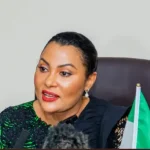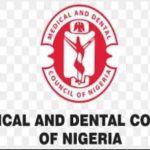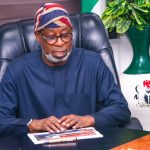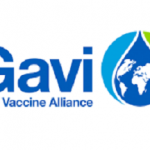Stakeholders Advocate Free Press to Sustain Nigerian Democracy
 Stakeholders in the media space have advocated a robust and free press as agent for driving and deepening the nation’s democracy. This was the outcome of the ‘talkshop’ to mark this year’s World Press Freedom Day held at the instance of the United States Embassy in Lagos.
Stakeholders in the media space have advocated a robust and free press as agent for driving and deepening the nation’s democracy. This was the outcome of the ‘talkshop’ to mark this year’s World Press Freedom Day held at the instance of the United States Embassy in Lagos.
Speakers drawn from the traditional media and new media held that openness is the key ingredient for the flourishing of democratic ideals, adding that such openness cannot be achieved where there is no freedom of the press. They noted that Freedom of the press breeds development and that development can only be sustainable where there is press freedom.
In his keynote, the Consular General Mr. John Bray admonished media practitioners in Nigeria to continue to uphold the truth and the tenets of their profession which include to bring public officers to account.
He said: “Today, you’ll be discussing the freedom of the press, the Freedom of Information Act, and the neutrality of the Internet. These are important topics that your peers across the world contend with. President Obama on May 17, 2010, signed the Freedom of the Press Act named in honor of former Wall Street reporter Daniel Pearl who was kidnapped and murdered by terrorists in Pakistan, four months after the September 11 terrorist attacks in the United States. Through this law, the United States Government is reaffirming that freedom of the press is an essential part of a democratic process.
“We do not only defend a free press with vigor in the United States but we also monitor other governments how they operate when it comes to a free press. Each year, the State Department gathers information and reports how press freedom is operating as part of our human rights assessment. The report is disseminated to governments, the news media, and civil society. Countries that condone the oppression of the press are exposed in the human rights report, which helps them to take steps to uphold the freedom of the press. In our public and private engagement we defend and reinforce a free press.
“For a democracy to thrive there has to be transparency and accountability and a free press and civil society shoulder the burden of holding governments responsible for their action or inaction. In the United States, we passed the Freedom of Information Act in July 1966, which went into effect the following year. Since then, there have been numerous amendments to strengthen the law. The FOIA is supported from the highest level of our government. And government agencies have a responsibility to respond to FOIA requests from the public within a reasonable time frame.
“ In January 2009, in a memorandum for the heads of executive departments and agencies, President Obama said, ‘In our democracy, the Freedom of Information Act (FOIA), which encourages accountability through transparency, is the most prominent expression of a profound national commitment to ensuring an open Government. At the heart of that commitment is the idea that accountability is in the interest of the Government and the citizenry alike.’
“Countries that have adopted a FOIA understand its value in a democratic society and the citizens are more informed. I am aware that you and your colleagues have been trying hard to make use of the FOIA that Nigeria adopted in 2011. I encourage you to persist until the law is enforced, including pressing hard for amendment to strengthen the law, “ he said.
Professor Lai Oso of the Department of Communications Studies, Lagos State University said if the media practitioners truly believe that access to information is a foundational right they must go beyond this. “Our understanding must embrace all forms of information required for daily survival and for safeguarding the integrity of humanity.
He said every member of society needs information therefore journalists must strive to make information available and accessible.
Deputy President of the Nigerian Guild of Editors and Commissioner for Information and Strategy, Lagos State, Mr. Steve Ayorinde, said there is the need for journalists to take responsibility for their actions. This, according to him, will make the public have more confidence in their reportage.








